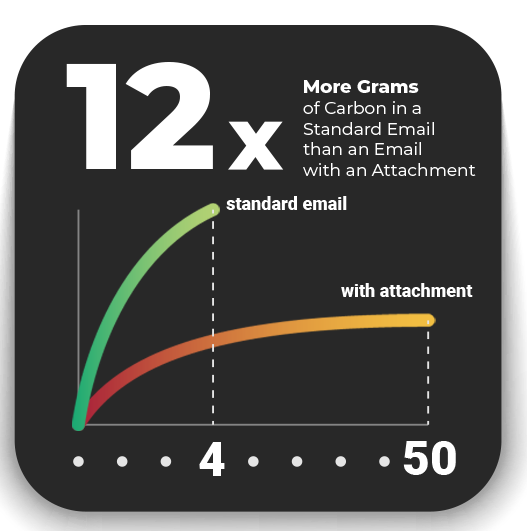
The Digital Footprint We Leave Behind
The Digital Footprint We Leave Behind
The pledge to declutter, digitally.
In our interconnected digital world, every online action—be it a sent email, a shared photo, or a streamed video—contributes to our digital footprint. While these digital accumulations might seem harmless, residing in the invisible realms of cyberspace, they demand tangible resources.
Our data inhabits vast amounts of server space and consumes significant energy. For instance, the carbon footprint of our emails, social media usage, and internet browsing is equivalent to the airline industry in environmental impact. What if we began with a simple step towards minimizing this footprint?
Deleting just one email might seem trivial, but it could initiate greater awareness and action towards environmental sustainability. This idea goes beyond mere inbox management; it’s about recognizing the broader implications of our online behaviors and their direct impact on our planet.
The Impact of Digital Clutter
Digital clutter goes beyond mere inconvenience; it’s a substantial environmental issue. Data centers, far from being ephemeral “cloud” entities, are extensive physical infrastructures sprawling across remote landscapes. They require massive spaces, continuous power, and extensive cooling systems to function.
The U.S. alone boasts over 3 million data centers, ranging from small server rooms to massive warehouses filled with servers. Each email we save necessitates a sliver of space on these servers, continuously consuming electricity—mostly sourced from non-renewable energy.
Understanding Data Storage: How Emails Contribute
Emails, especially those with large attachments, are more than just digital messages; they are persistent demands on our power grid. To put it into perspective, a single email is estimated to have a carbon footprint equivalent to a 60-watt light bulb running for 20 minutes.

The constant demand to keep these centers operational and ensure that data remains accessible and secure is a significant contributor to global carbon emissions.
The Environmental Cost of Storing Emails
It’s estimated that by 2025, data centers could consume up to 20% of the world’s electricity, with a significant portion attributed to email storage.
Highlighting recent studies, such as those from the International Energy Agency, can provide a more authoritative look at how our digital habits are translating into real-world environmental costs.

What If Everyone Deleted One Email?
Deleting a single email might seem insignificant, but its true power lies in collective action. If every one of the 3.9 billion email users worldwide deleted just one email, this could save thousands of gigabytes in storage—potentially reducing the need for several data centers.

This reduction translates directly into decreased energy requirements for storage and cooling. To visualize this impact, imagine reducing the annual electricity consumption equivalent to turning off the lights in over 1,000 homes for a year.
Beyond a Single Email: Expanding Our Digital Cleanup
While deleting one email is a positive start, the real impact grows exponentially when we extend this practice to regularly cleaning out our inboxes, especially those emails with large attachments or those stored for years without relevance.
Make a difference right now and implement the following suggestions:
- Unsubscribe from emails you don’t need
- Delete spam emails (and report them as spam)
- Don’t sign up for a newsletter you won’t read
- Delete emails once you read them
A Step Towards a Sustainable Future
By participating in digital decluttering, we contribute to a larger movement that not only frees up our digital spaces but also conserves our planet’s resources. This action, as simple as deleting an email, can inspire further steps towards integrating digital and environmental consciousness.

Let this be a call to action for each of us: Join the digital decluttering movement today and make a difference—one email, one file, one step at a time. Together, we can shape a sustainable digital future, reducing the ecological footprint of our online activities and promoting a healthier planet.